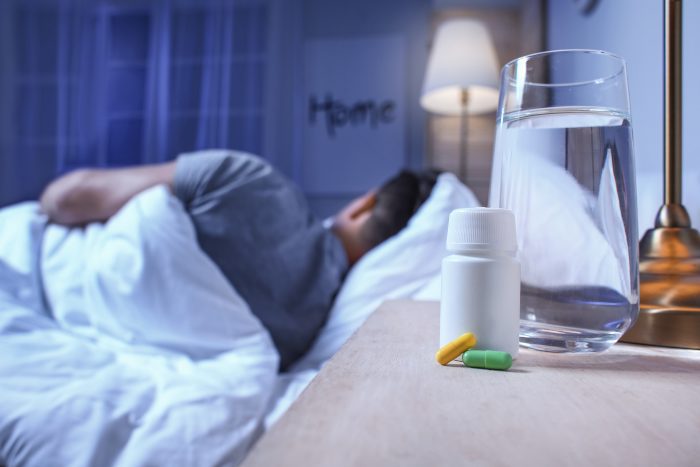By Sandy Baker
Sleep aids are medications aimed to help ease a person into sleep when they cannot do so naturally. The U.S. Centers for Disease Control and Prevention states that not getting enough sleep can be detrimental to health, causing an increased risk of heart disease, obesity, depression, and type 2 diabetes.
Common Forms of Sleeping Pills
There are risks that come from taking too many sleep medications or taking those drugs for a long period of time.
Common forms of sleeping pills include:
- Ambien (Zolpidem)
- Restoril (temazepam)
- Eszopiclone (Lunesta)
- Doxepin (Silenor)
- Sonata (Zaleplon)
Do Sleeping Pills Cause Addiction?
The short answer to this is that yes, they can. Though many people don’t recognize the risk of addiction brought on by sleeping pills, it can happen if a person is using these drugs for a long period of time, often over 4 weeks of consistent use, or when they are using too much of the drug at once.
Sleeping pills typically work by depressing the function of the central nervous system. Those who have trouble sleeping may find themselves struggling with muscle pain, a racing mind, and anxiety. Sleep medications slow brain function, relax muscles, and help slow down thought patterns.
Yet these drugs can, over time, change the brain’s chemistry and cause dependence. When dependence develops, a person cannot stop using these drugs without feeling pain, emotional distress, or even an inability to sleep at all.
Common Signs of Sleeping Pill Addiction
Long-term use of sleeping pills is not often recommended. That’s because many forms of them carry the risk of addiction. Some people may develop a tolerance for the drugs rather quickly, requiring more of the drug to get the same results. Others may have intense cravings for the drug.
Some of the most common signs of sleeping pill addiction include:
- Feeling the need to take sleeping pills every night and even during the day
- Turning to a second or third doctor to get a new prescription for the drugs
- Experiencing memory loss or periods of time when you do not remember anything
- Using the drug for longer than prescribed
- Feeling intense cravings when not using the drug that are hard or impossible to ignore
In these situations, a person may develop addiction: they will have a physical dependence on the drug and feel a psychological need to keep using the drug even when they want to stop. If you have tried to quit but failed due to cravings or physical and emotional distress, that could indicate an addiction. When addiction forms, it is very difficult for a person to stop using these drugs on their own.
Dangers of Mixing Sleeping Pills with Other Drugs
A secondary complication from taking sleeping pills occurs when a person uses these drugs with other drugs, a condition called polysubstance abuse. When this occurs, a person may mix the sleeping pills with opioids (prescription or illicit), alcohol, stimulants, or benzodiazepines. Any combination of drug use can lead to numerous health complications.
Complications from this include:
- Deep sedation that makes it impossible for a person to wake up
- Risk-taking behavior
- Impairment so significant that driving a vehicle or working can lead to a fatal accident
- Overdose, a life-threatening health complication typically including depressed respiration and heart rate
What Can Be Done About a Sleeping Pill Addiction?
One of the most complex components of sleeping pill addiction is that it’s not easy to stop taking these drugs without help. Doing so may lead to intense cravings, emotional distress, and (ironically) insomnia. The insomnia that comes with quitting cold turkey can lead to a higher risk of health complications, risky behavior, and mood swings.
For those with moderate to severe addiction, the better option is to seek residential treatment for sleeping pill addiction. This enables a person to have a medical team available to help slowly reduce the amount of the medication they are taking. There may be medications that ease withdrawal symptoms and cravings, too.
We Are Here to Help
The Ranch at Dove Tree provides a comprehensive substance abuse treatment center in Lubbock, Texas, that includes individual and group therapy. Anxiety is often an underlying cause of insomnia, and our team can help you address your anxiety and any other mental health concerns. Learn more about the treatment programs we offer that can make a positive impact on your health and future.







